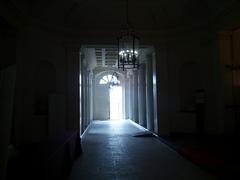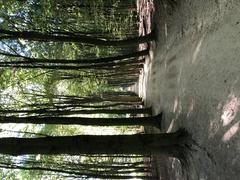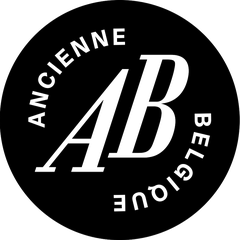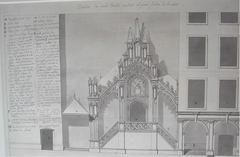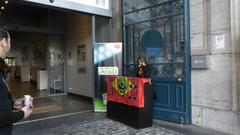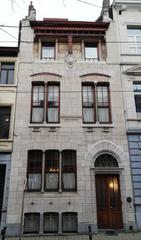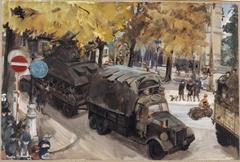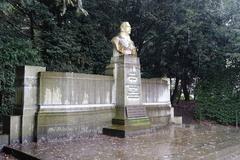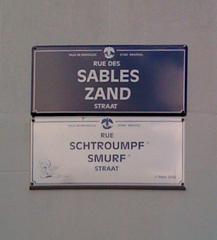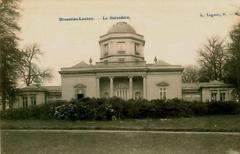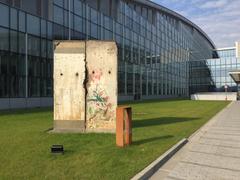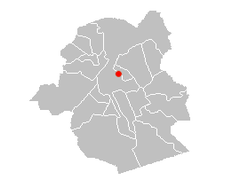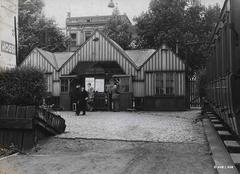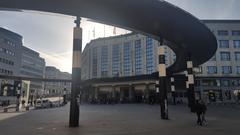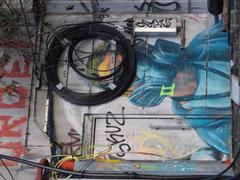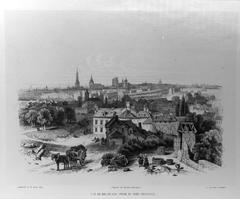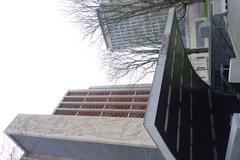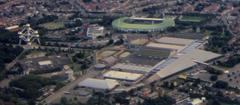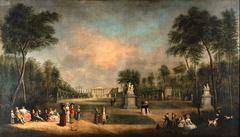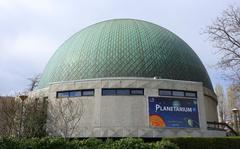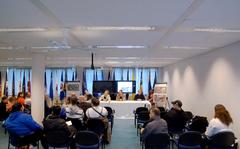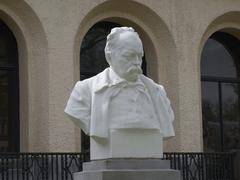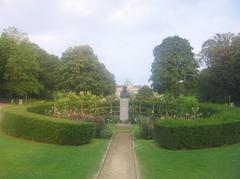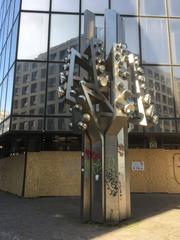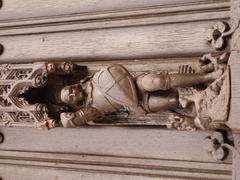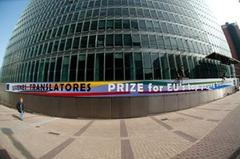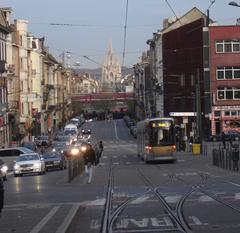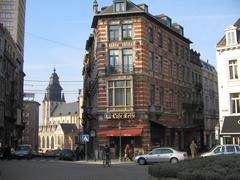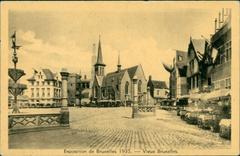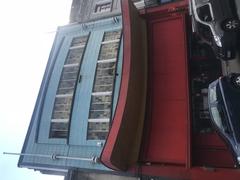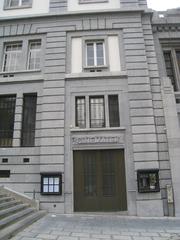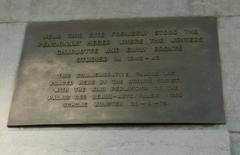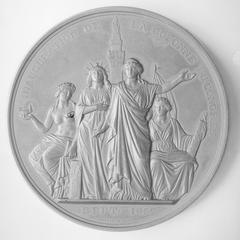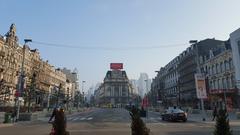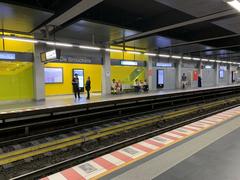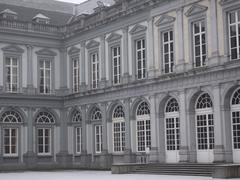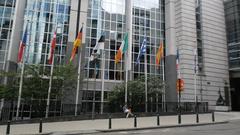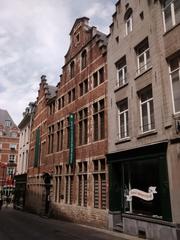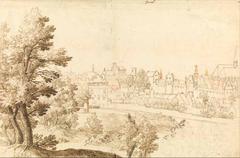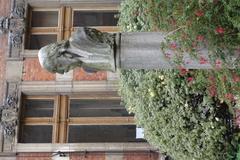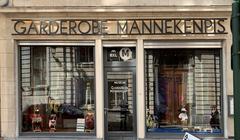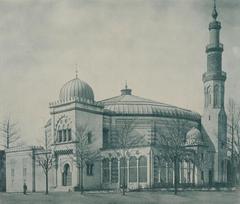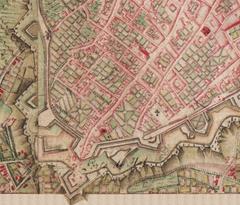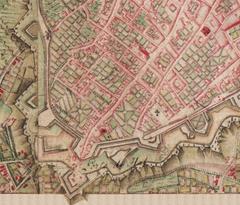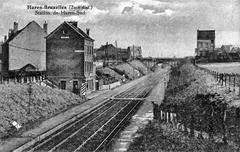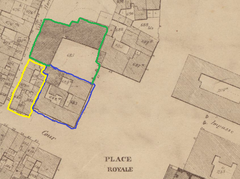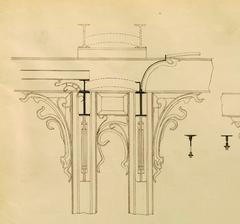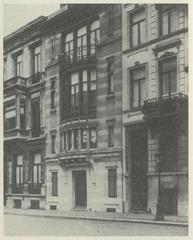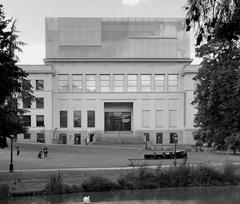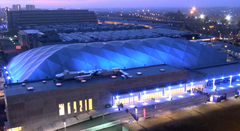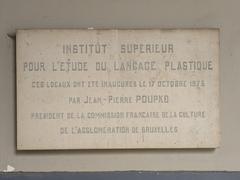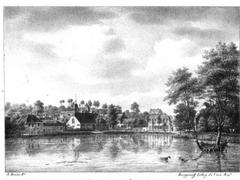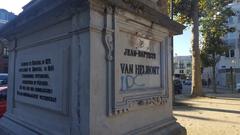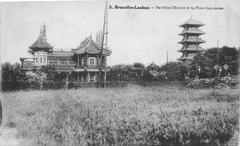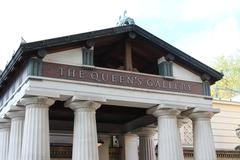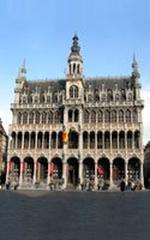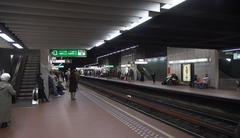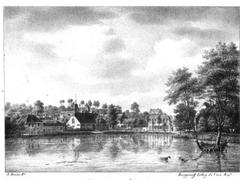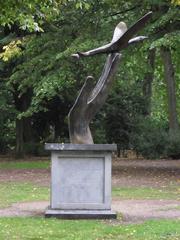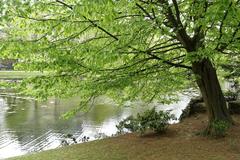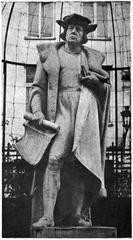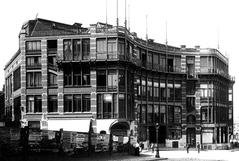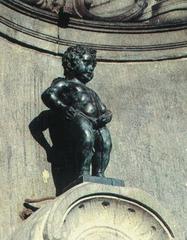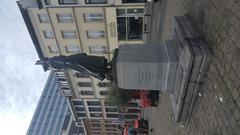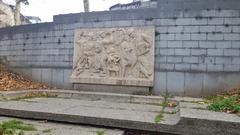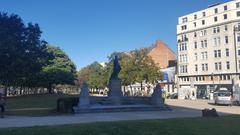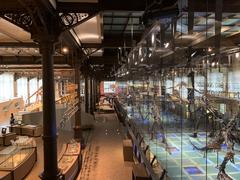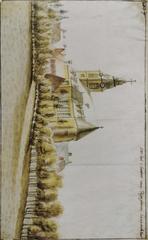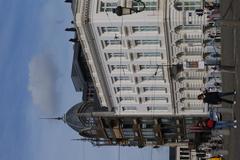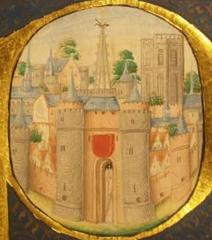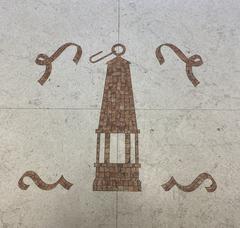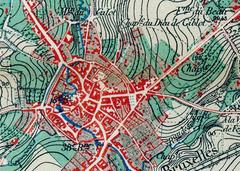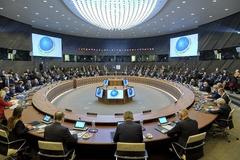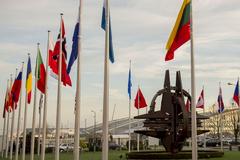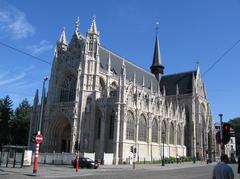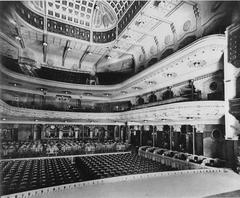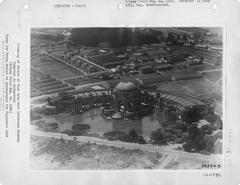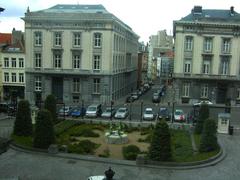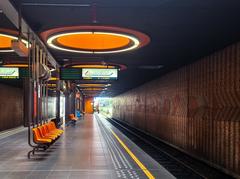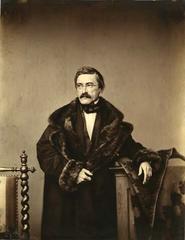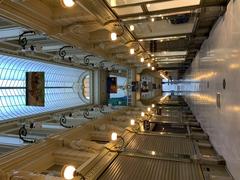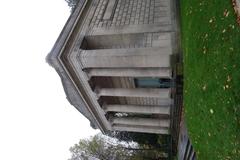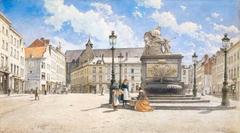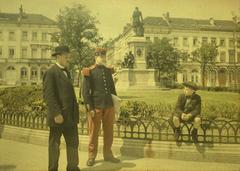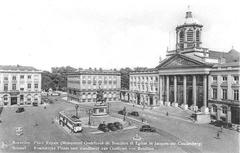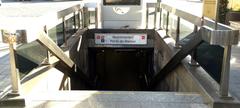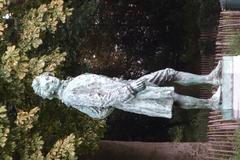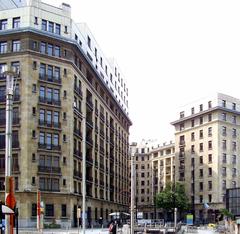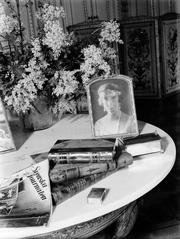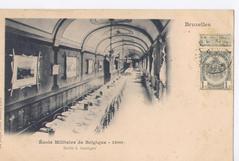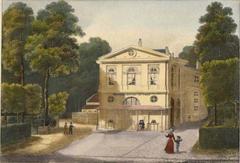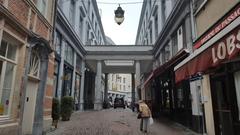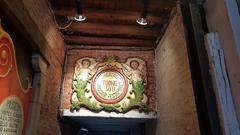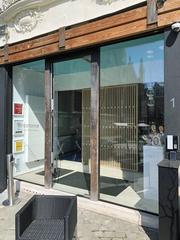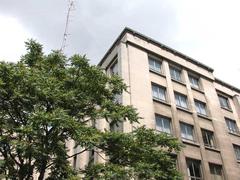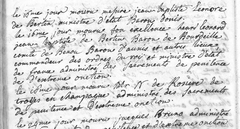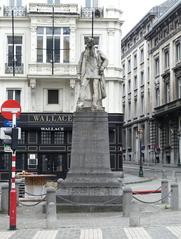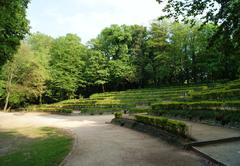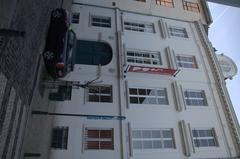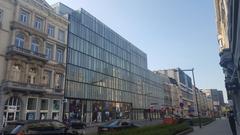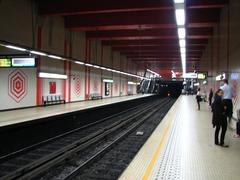
Military Hospital Queen Astrid Brussels: Visiting Hours, Tickets, and Visitor Information
Date: 04/07/2025
Introduction
The Military Hospital Queen Astrid (Hôpital Militaire Reine Astrid / Militair Hospitaal Koningin Astrid) is a cornerstone of military and civilian healthcare in Brussels, Belgium. Established in 1939 and named after Queen Astrid, this institution is renowned for its medical innovation, humanitarian service, and architectural significance. Strategically located in the Neder-Over-Heembeek district, the hospital has grown into a modern center of excellence, specializing in burn treatment, infectious disease research, and pioneering phage therapy.
Though primarily a functioning medical facility, Military Hospital Queen Astrid occasionally opens its doors to the public for guided tours, educational visits, and heritage events, enabling visitors to explore its unique history and contributions to both medicine and society. This guide provides comprehensive details on the hospital’s history, specialized services, visiting hours, ticketing, accessibility, and practical travel tips, ensuring an informative and enriching visit. For the latest updates, refer to the hospital’s official website, as well as local tourism resources (source 1, source 2, source 3).
Table of Contents
- Historical Background and Evolution
- Visitor Information
- Specialized Clinical Facilities and Research
- Innovative Treatments and Patient Care
- Practical Information for Visitors and Medical Tourists
- Visiting as a Cultural and Architectural Landmark
- Frequently Asked Questions (FAQ)
- Summary and Next Steps
- References
Historical Background and Evolution
Foundation and Early Years
Military Hospital Queen Astrid was founded in 1939, during a time of increasing international tension, to serve both the Belgian Armed Forces and civilians. Designed for self-sufficiency, it included independent power, water, and logistics systems, positioning it as a vital asset during crises.
Wartime Service and Postwar Expansion
During World War II, the hospital expanded rapidly to treat wounded soldiers and civilians under challenging conditions. In the postwar years, it became a center for veteran rehabilitation and developed expertise in trauma and reconstructive surgery, shaping the landscape of military medicine in Belgium and beyond.
Modernization and Specialization
From the 1970s onwards, Military Hospital Queen Astrid underwent significant modernization, including state-of-the-art surgical suites, advanced intensive care units, and the establishment of specialized departments such as the acclaimed Burn Center (est. 1975). These developments have cemented its reputation as a leader in emergency and trauma care.
Role in National and International Crises
The hospital has played critical roles in Belgium’s response to emergencies, notably during the 2016 Brussels bombings and the COVID-19 pandemic. Its disaster medicine unit and medical teams also support international humanitarian and peacekeeping missions.
Architectural Evolution and Integration
Spanning over 30 hectares with more than 500 beds, the hospital’s architecture has evolved from functionalist military origins to incorporate modern medical technologies and digital health infrastructure. As part of Belgium’s Ministry of Defence, it collaborates closely with local hospitals, universities, and research institutes, contributing to both healthcare delivery and education.
Commemoration and Public Engagement
The hospital honors Queen Astrid’s legacy through memorials, exhibitions, and public events like Belgian National Day and European Heritage Days. These occasions offer guided tours and opportunities for the public to engage with the institution’s rich history and innovations.
Visitor Information
Visiting Hours and Access
- Regular Public Access: As an active medical facility, Military Hospital Queen Astrid does not have daily public visiting hours. Access for visitors is generally possible during special events (e.g., European Heritage Days) or through pre-arranged guided tours for educational groups.
- Arranging a Visit: All visits must be coordinated in advance with the hospital administration due to security and operational considerations. Some areas may remain restricted at all times.
- Contact: Use the official website or dedicated visitor information lines for up-to-date details and to request visits.
Ticketing and Fees
- Admission: Visiting during public events or on guided tours is typically free, though prior registration is required for security reasons.
- Special Programs: Certain educational events or exhibitions may involve a nominal fee, which will be communicated during booking.
Accessibility and Travel Tips
- Location: Rue Bruyn 1, 1120 Brussels, Belgium.
- By Public Transport: Accessible via several Brussels STIB/MIVB bus lines (e.g., 47 and 53), with connections from Brussels-North railway station. STIB/MIVB website
- By Metro: Nearest major station is Montgomery (lines 1 and 5), with further bus/tram connections.
- By Car: On-site parking is available, including accessible parking close to the entrance.
- Accessibility: The entire complex is wheelchair accessible, with step-free routes, elevators, and multilingual signage.
Nearby Attractions
- Atomium: Iconic modernist structure, approximately 5 km away.
- Royal Greenhouses of Laeken: Historic gardens nearby.
- Brussels City Center: Grand Place, museums, and shopping within easy reach by public transport.
Specialized Clinical Facilities and Research
Burn Center
The hospital’s internationally renowned Burn Center provides comprehensive care for severe burn injuries, integrating advanced wound management and rehabilitation services (clinicaltrials.eu). It played a vital role during the Brussels terrorist attacks and other mass casualty events (routeyou.com).
Laboratory for Molecular and Cellular Technology (LabMCT)
Led by Dr. Jean-Paul Pirnay, LabMCT is a pioneer in phage therapy and research on antimicrobial resistance (rsu.lv). The hospital supplies phage-based treatments to institutions across Europe and is a reference center for innovative infection management (phage.directory).
Allergy and Immunology
The hospital offers advanced allergy diagnostics and immunological assessments, especially for military personnel deploying internationally. Research includes comparative studies on allergy prevalence and severity among deployed and non-deployed soldiers (clinconnect.io).
Infectious Diseases and Vaccine Research
Queen Astrid Military Hospital is a leading site for vaccine and infectious disease clinical trials, collaborating with national and international health agencies (clinicaltrials.eu).
Hyperbaric Oxygen Therapy and Rehabilitation
The hospital houses Belgium’s leading hyperbaric oxygen therapy center, advanced physiotherapy, and rehabilitation units for both military and civilian patients (military-medicine.com).
Innovative Treatments and Patient Care
Regenerative Medicine and Bioengineering
The hospital is at the forefront of regenerative medicine, utilizing bioengineered skin substitutes, stem cell therapies, and minimally invasive surgical techniques to improve outcomes for trauma and burn patients.
Digital Health and Patient Monitoring
Military Hospital Queen Astrid leverages state-of-the-art digital health technologies, including telemedicine, remote patient monitoring, and comprehensive electronic health records for optimal patient management.
Multidisciplinary and Personalized Medicine
A hallmark of the hospital’s approach is integrated, multidisciplinary care—coordinated among medical, surgical, psychological, and rehabilitative teams—to ensure personalized treatment for complex cases.
Practical Information for Visitors and Medical Tourists
- Multilingual Support: Staff are proficient in French, Dutch, and English, ensuring clear communication with international visitors.
- Patient Navigation: Dedicated coordinators assist with logistics, documentation, and care planning for international patients.
- On-Site Amenities: Cafeterias, waiting areas, and family support services are available.
- Security: As a military facility, the hospital maintains rigorous security and privacy standards. Bring valid identification and adhere to all posted protocols.
- Clinical Trials Participation: Information on ongoing trials, eligibility, and application procedures is available via the hospital’s clinical research portal.
Visiting as a Cultural and Architectural Landmark
History and Significance
The hospital’s architecture reflects a unique blend of early 20th-century military functionality and modern design. Its grounds have been the site of significant national events and medical advances.
Guided Tours and Open Days
- Access: Guided tours are generally offered by appointment during special open days or heritage events.
- Language: Tours are available in French and Dutch; English can be arranged upon request.
- Photography: Restricted inside the hospital to protect privacy and security.
Registration and Entry
- Booking: Advance registration is required for all tours and events. Visit the official website for current opportunities.
Accessibility
- Facilities: Step-free access, elevators, and accessible restrooms are available. Notify staff of any special requirements in advance.
Frequently Asked Questions (FAQ)
Q: What are the visiting hours?
A: Visiting is by appointment during special events or pre-arranged guided tours.
Q: Is there an entrance fee?
A: Entry is typically free for public events and tours; some special programs may require a fee.
Q: How do I register for a tour?
A: Use the official website or contact the visitor desk to arrange your visit.
Q: Is the hospital accessible for people with disabilities?
A: Yes, the facility is fully accessible.
Q: How can I reach the hospital via public transport?
A: Take bus lines 47 or 53 from Brussels-North station, or use the Metro to Montgomery station and transfer.
Q: Are there nearby attractions?
A: Yes, including Atomium, Royal Greenhouses of Laeken, and the Brussels city center.
Q: Can I visit medical departments such as the burns unit?
A: No, clinical areas are not open to the public except during specialized educational tours.
Summary and Next Steps
Military Hospital Queen Astrid stands as a unique fusion of military medical legacy, innovative clinical services, and architectural heritage. Although general public access is limited, special events and guided tours offer opportunities to explore its significant contributions to Belgian healthcare and history. Visitors are encouraged to plan ahead by checking the latest visiting schedules, registering for tours, and exploring nearby attractions for a comprehensive Brussels experience.
For further details or to arrange a visit, consult the hospital’s official website and download the Audiala app for interactive guides and updates.
References
- Military Hospital Queen Astrid Official Website
- Military Medicine Almanac: Belgium
- Queen Astrid Military Hospital Visitor Details
- Clinical Trials at Queen Astrid Military Hospital
- Phage Futures: Jean-Paul Pirnay
- RouteYou: Queen Astrid Military Hospital
- RSU: Jean-Paul Pirnay
- STIB/MIVB Public Transport
- Clinical Trials Europe: Queen Astrid Military Hospital


